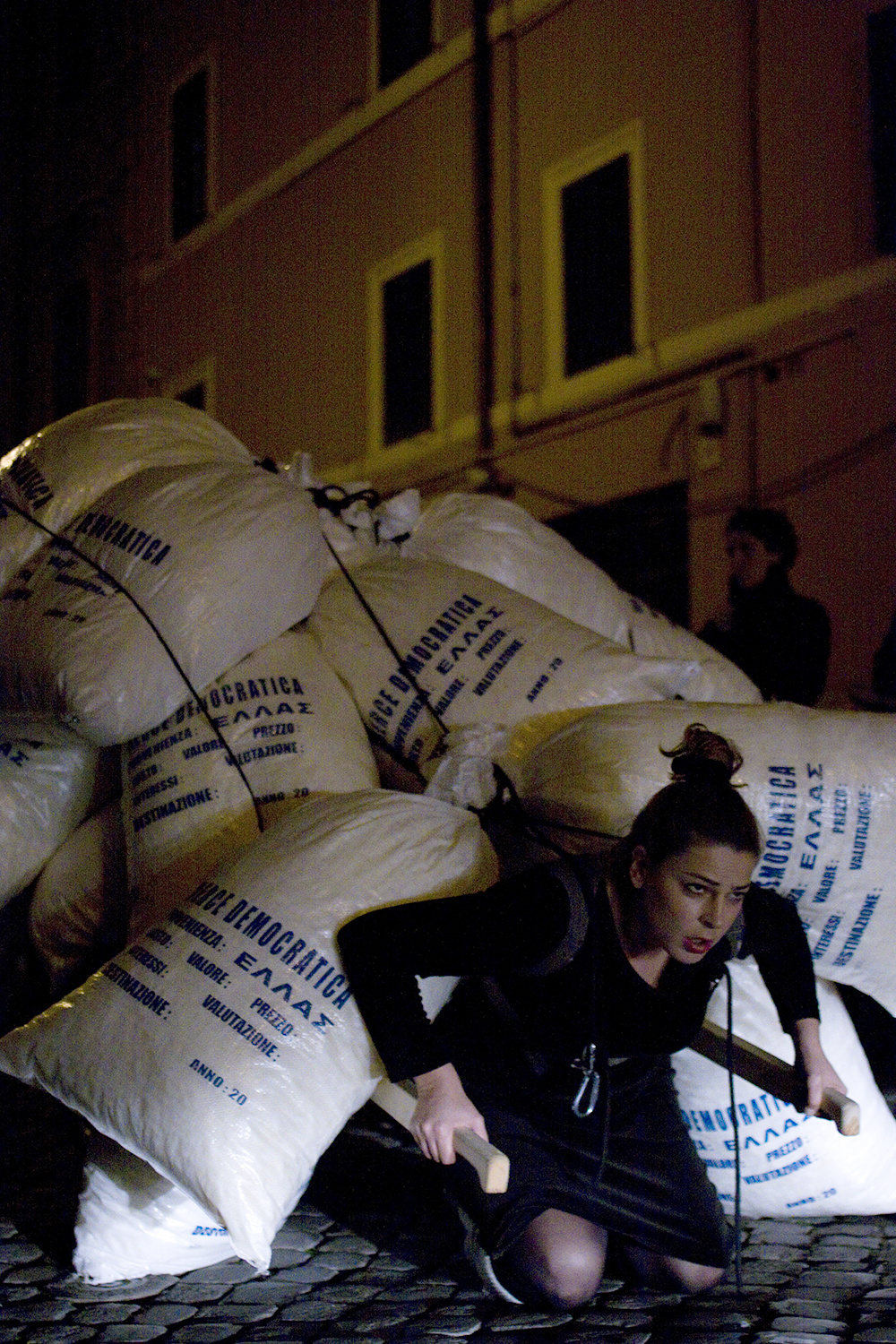Mary Zygouri researches, reenacts, and reconfigures the politics and poetics of the archive. She positions herself in its critical fissures, conflicts, and silences, bringing forth how “minor” histories haunt the archive as they clamor to be heard. In her work for documenta 14, Zygouri (born in Athens in 1973) collects remnants of the archive of Greek performance artist Maria Karavela, much of which was lost in a fire at her studio in 1996.
Zygouri engages with Karavela’s iconic Kokkinia performance on June 27, 1979. This working-class Athens neighborhood was the site of the “Blockade of Kokkinia” in August 1944 when, in reprisals against an uprising led by the communist resistance, German soldiers executed hundreds of people and sent more to concentration camps. Five years after the fall of the military junta, Karavela screened her banned film Antistasi (Resistance) (1977; destroyed by fire in 1996) on Saint Nicholas Square in Kokkinia. The film featured scenes from the wartime resistance, alongside testimonies by communist fighters about the Greek Civil War and their experience in exile. In the layered temporality of the performance, the active participation of the public intersected with the filmed interviews and the modes of artistic work through which political loss is witnessed and performed.
Zygouri responds—and makes us listen—to this matrix of documentation, akin to Michel Foucault’s notion of a “history of the present”: a genealogical inquiry beginning from a question posed in the present. She lets the spectrality of the event redesign the public space, giving way to a critical performativity of political memory. The work takes the form of an exhibition at the Museum of the Kokkinia Blockade, educational workshops at local schools, and a public performance made with the community, through which she maps out what she calls a pedagogy of the “open work.”
Shaped by the untold histories of Karavela’s marginalization and self-enforced exile, Zygouri’s performance moves between layers of testimony: tenacious remnants of a neglected archive, morphing genres of documentation, loss and dissident memory. Through this assemblage of memory, in all its passionate and vulnerable intensities, the question of political subjectivity persists: who is to inhabit public space, be part of the collective body, and lay claim to its archival knowledge, when “collective memory” denotes a shared but differentially allocated affect of belonging?
Zygouri opens these questions to a new reading on the limits of what is im/possible to narrate, witness, and recollect. Her search for Maria Karavela in Kokkinia remembers what is critically irrecoverable.
—Athena Athanasiou



